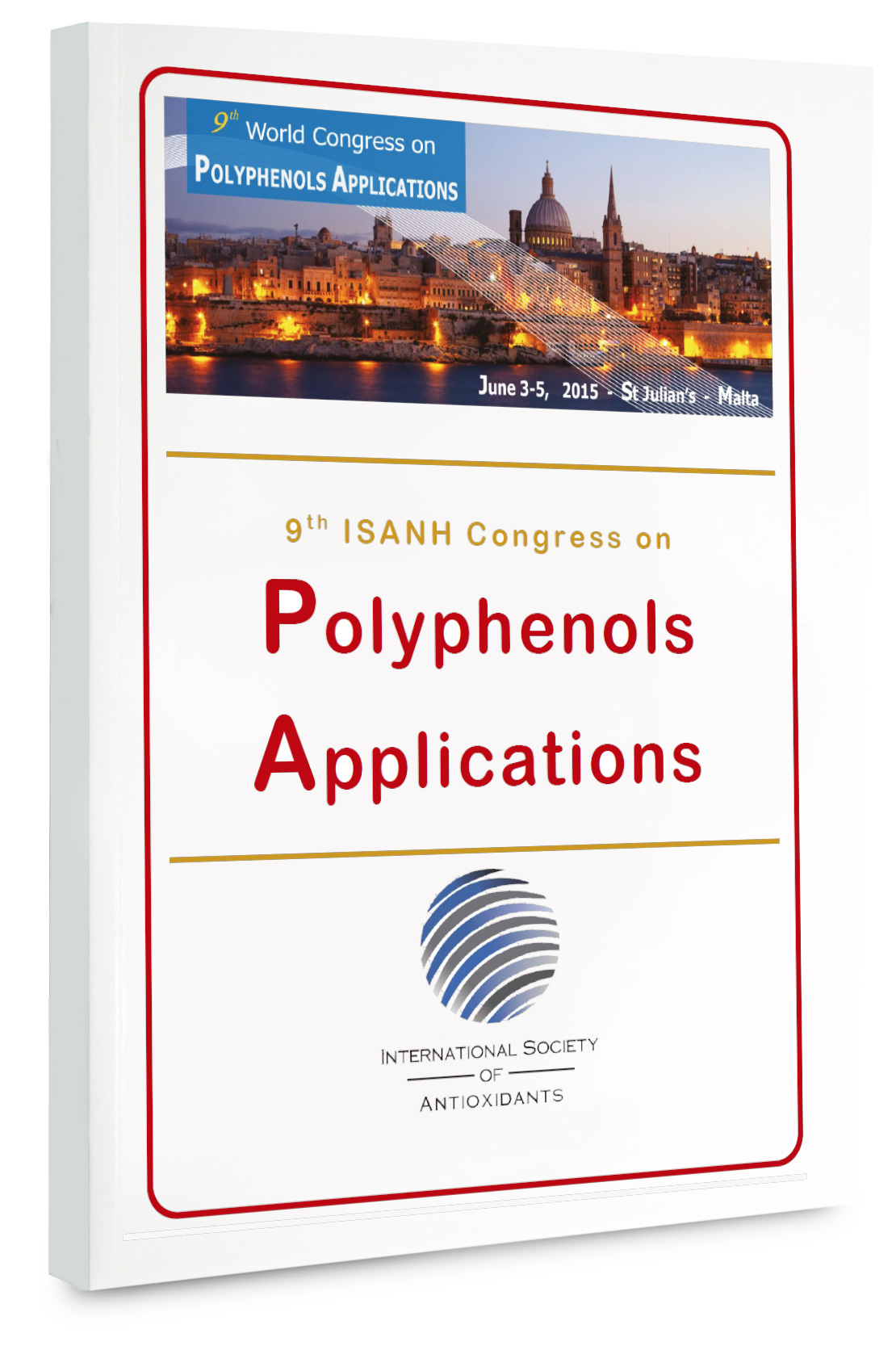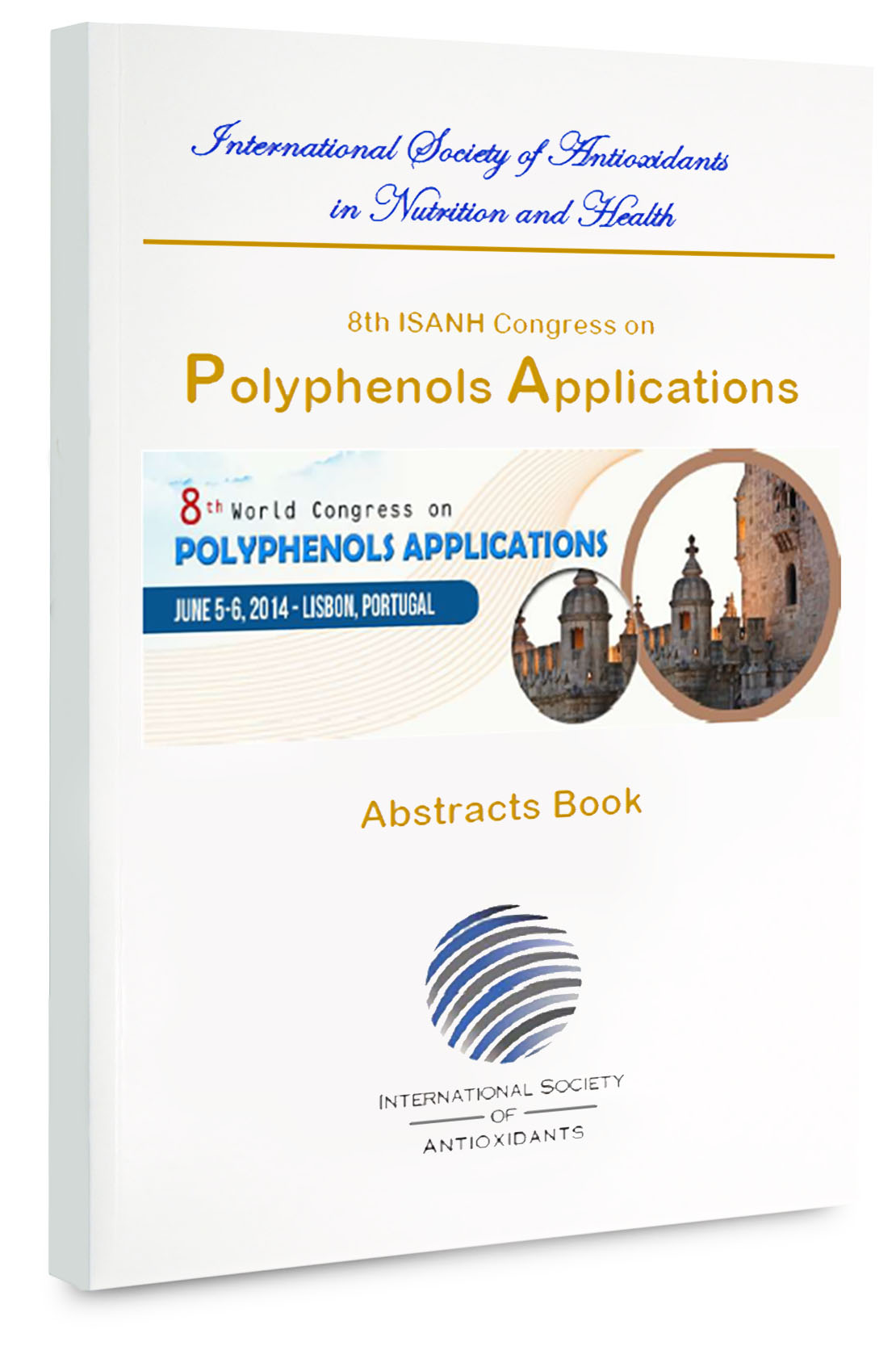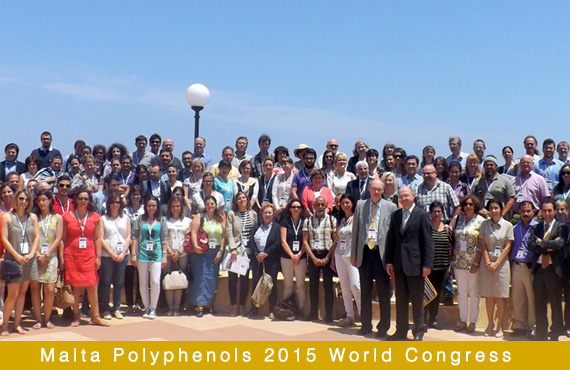News
Polyphenols and Taste: Activation of Distinct Human Bitter Taste Receptors
 Several healthy properties have been associated to polyphenol compounds. However, some of them are known to have a bitter taste and people avoid their intake. Polyphenols bitterness is usually assessed by sensory analysis but the available data are rather inconsistent.In the work presented by Dr Susana Soares during Lisbon Polyphenols 2014, bitterness of six polyphenol compounds present in a wide range of plant-derived foods/beverages was analyzed by activation of the human bitter taste receptors, TAS2Rs.
Several healthy properties have been associated to polyphenol compounds. However, some of them are known to have a bitter taste and people avoid their intake. Polyphenols bitterness is usually assessed by sensory analysis but the available data are rather inconsistent.In the work presented by Dr Susana Soares during Lisbon Polyphenols 2014, bitterness of six polyphenol compounds present in a wide range of plant-derived foods/beverages was analyzed by activation of the human bitter taste receptors, TAS2Rs.
A short-cut to comprehensive health benefits of dietary polyphenols: the nitrate-nitrite-nitric oxide pathway
 During Polyphenols 2014 World Congress in Lisbon next June 2014, Pr. João Laranjinha from University of Coimbra, Portugal will discuss about "A short-cut to comprehensive health benefits of dietary polyphenols: the nitrate-nitrite-nitric oxide pathway"
During Polyphenols 2014 World Congress in Lisbon next June 2014, Pr. João Laranjinha from University of Coimbra, Portugal will discuss about "A short-cut to comprehensive health benefits of dietary polyphenols: the nitrate-nitrite-nitric oxide pathway"
Regular consumption of a pomegranate and grape juice improves oxidative status and causes metabolome changes in healthy adults
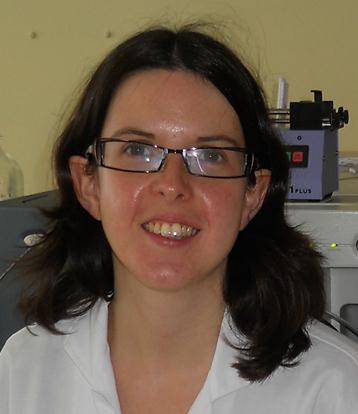 During Lisbon Polyphenols 2014, as special session will be dedicated to Pomegranate Polyphenols: Recent Advances & Perspectives.
During Lisbon Polyphenols 2014, as special session will be dedicated to Pomegranate Polyphenols: Recent Advances & Perspectives.
One of the presentation will be done by Dr Jara Perez-Jimenez, from ICTAN, Spain about "Regular consumption of a pomegrante and grape juice improves oxidative status and causes metabolome changes in healthy adults". This study was elaborated by Dr Maria Elena Diaz Rubio from ICTAN, Spain.
Encapsulation modulates the bioavailability of anthocyanins and their degradation products
 Pr. Elke Richling from Kaiserslautern Technical University, Germany will talk about Encapsulation modulates the bioavailability of anthocyanins and their degradation products during Polyphenols 2014 World Congress in Lisbon next June 2014.
Pr. Elke Richling from Kaiserslautern Technical University, Germany will talk about Encapsulation modulates the bioavailability of anthocyanins and their degradation products during Polyphenols 2014 World Congress in Lisbon next June 2014.
Anthocyanins are responsible for attractive color of red fruits and are attributed with beneficial effects. Especially bilberries have a broad spectrum of anthocyanins. For the described biological mechanisms, the bioavailability of anthocyanins at the site of absorption has a crucial importance.
The science behind pomegranates will be showcased during Polyphenols 2014 by Pr. M. Aviram
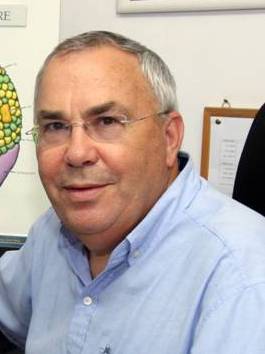 Pr. Michael Aviram, Senior Vice Dean, Head, Lipid Research Laboratory, Technion Faculty of Medicine, Rambam Medical Center, Bat - Galim, Haifa - Israel will highlight the recent advances on pomegranate and health: “Pomegranate & Health: What’s Next?”.
Pr. Michael Aviram, Senior Vice Dean, Head, Lipid Research Laboratory, Technion Faculty of Medicine, Rambam Medical Center, Bat - Galim, Haifa - Israel will highlight the recent advances on pomegranate and health: “Pomegranate & Health: What’s Next?”.
Pr. M. Aviram will also discuss how the combination of pomegranate constituents with major polyphenols – rich Mediterranean Diet fruits and vegetables may substantially improve human health.
Dr. Jara Perez-Jimenez will also talk about "Regular consumption of a pomegrante and grape juice improves oxidative status and causes metabolome changes in healthy adults" during the 8th World Congress on Polyphenols Applications: ISANH Polyphenols 2014, which will be held at Lisbon, Portugal, on June 5-6, 2014.
For more information: www.polyphenols-site.com
More Articles...
- Non-extractable polyphenols or macroantioxidants: Recent Advances and Perspectives
- Biorefinery concept with green solvents towards the phenolic valorization
- Polyphenols & Antioxidants Incorporation into Food Packaging: Trends & Perspectives discussed during Polyphenols World Congress 2014
- Distinguished speakers and oral presentations of Lisbon Polyphenols 2014




